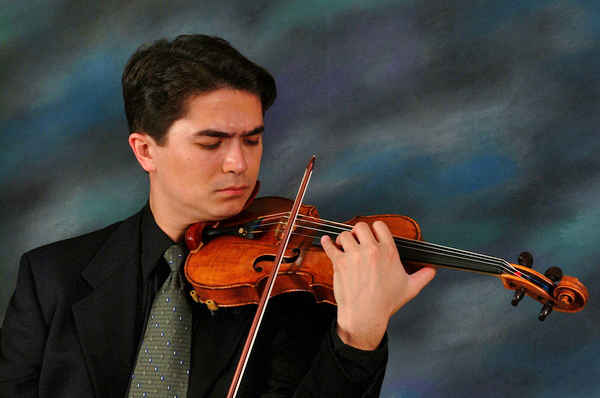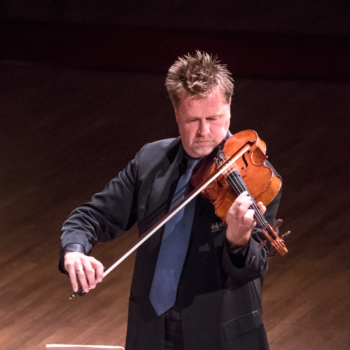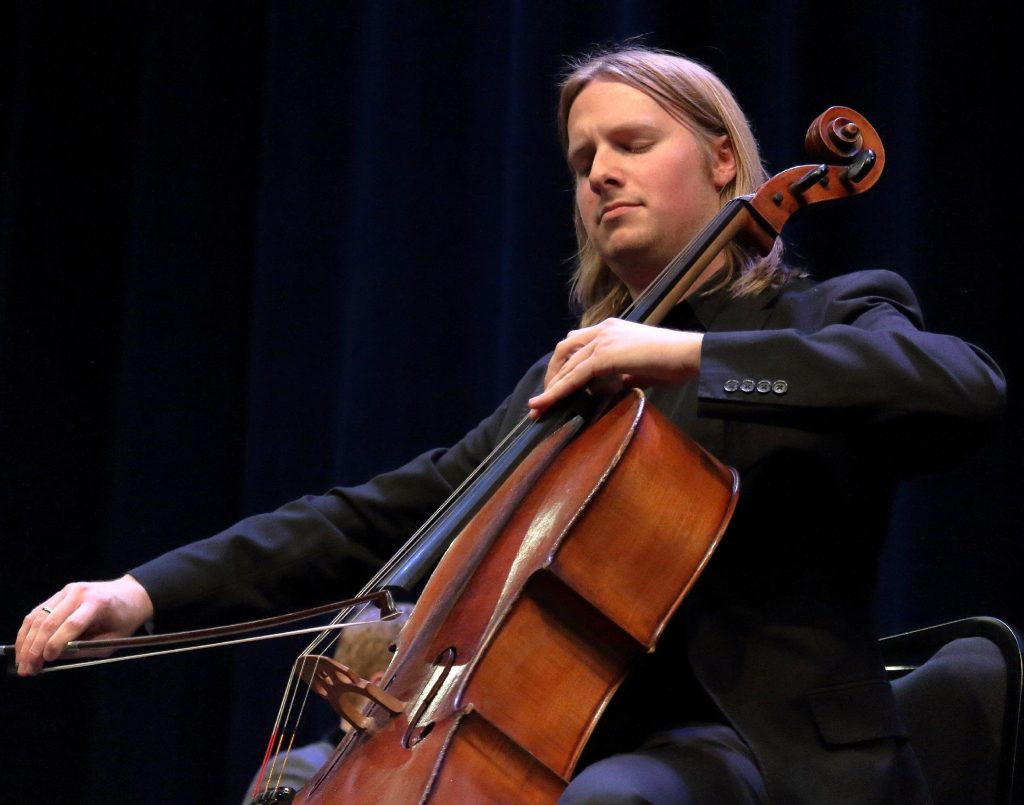Boston Chamber Music returns to Ogunquit
Celebrating the Music of
Schubert, String Trio in B-Flat Major
Mozart, Divertimento in E-Flat Major and
Beethoven, String Trio in G-Major
After several months of uncertainty over the use of the Dunaway auditorium, OPA is delighted to be able to return to the Dunaway Center venue for this year’s Chamber Festival.
Since its inception, the Chamber Music Festival has always been a very special occasion for OPA, and in recent years, has been an on-going partnership with Boston Chamber Music. For more than two decades, the Boston-based players have put together a special ensemble for the Ogunquit Festival, unique to OPA. This year’s programming explores accessible, but lesser-known and powerful music from the Viennese School of Classical and Romantic eras.
This year’s Boston Chamber musical artists will include:

Omar Chen Guey, Violinist
Mr. Guey has performed as soloist, in recitals and chamber concerts throughout his native Brazil, the US, Europe, Asia and Africa. He has been a soloist with the Brazilian, Campinas, Goiania, Mias Gerais, Claudio Santoro National Theatre, Sao Paulo University, San Paulo Municipal, State of San Paulo Symphony Orchestras, Qatar Philharmonic, Manhattan School of Music, Stonu Brook University Symphony, Maidstone Symphony and the Seychelles International Music Festival Orchestras.
In 2023, he performed the Vivaldi Four Seasons with the Fribourg Youth Orchestra in Switzerland, having previously performed the Britten Violin Concerto with them. He is a prizewinner at both Tibor Varga and Lipizer International Violin Competitions.
He is on the faculty of Dartmouth College. He is the assistant concertmaster of the Rhode Island Philharmonic, a member of the Boston Ballet and the New England Camerata Trio. He’s been a guest artist with Radius Ensemble, Boston Symphony Orchestra Chamber Players, Worcester Chamber Music Society, Walden Chamber Players and the Monadnock Music Festival. Mr. Guey’s premiere of the Violin Concerto by Jean-Charles Gandrille with the Qatar Philharmonic was released on the French recording label Paraty.

Peter Sulski, Violist
Mr. Sulski was a member of the London Symphony Orchestra for seven years. While in England, he served on the faculty of the Royal College of Music and Trinity College of Music and Drama, as well as serving as Artistic Director of Chapel Royal Concerts which he founded in 1993. For seven years he gave the annual Viola Masterclass along with many solo recitals and chamber music concerts at the Dartington International Summer School. He made his Carnegie Hall Debut in 1999, and his first London South Bank appearance in 2001.
After a brief stint in the Middle East as Head of Strings of the National Palestinian Conservatory, Bicommunal Coordinator for chamber music for the Cyprus Fulbright Commission and Principal Violist of the Cyprus Chamber Orchestra, in 2002, he returned with his wife Anita to his native Worcester where he is currently on the faculty of Clark University and College of the Holy Cross as teacher of violin/viola/chamber music. He is a member of QX and Mistral. Peter is also Artistic Director of the Thayer Festival in Lancaster, MA and records for Centaur Records.

Brent Selby, Cellist
A cellist and teacher, Mr. Selby is from the small town of Bath, North Carolina, where he was raised on a farm. Up until age eleven he thought he would end up farming crops like his father, but after seeing Yo-Yo Ma perform on PBS he decided he was interested in music and learning to play the cello. Luckily, Doris Hamilton, a retired violinist, had recently moved to the area and agreed to teach him until she could find him a proper cello teacher. He eventually went on to study with Wendy Bissinger and then at 17, he studied with Emanuel Gruber, Cello faculty at East Carolina University.
Mr. Selby earned his bachelor’s degree from the New England Conservatory studying with Natasha Brofsky and then went on to study privately with violinist, Mela Tenenbaum. In addition to performing with various local ensembles, he began teaching cello for Lifelong Music Academy in Franklin, MA where he has now been teaching for over a decade. Mr. Selby is passionate about providing quality music instruction for children as much as he loves performing. In 2018, Mr. Selby joined the Rhode Island Philharmonic’s cello section, and in 2021 he was appointed assistant principal cellist of the Portland Symphony Orchestra. In 2022, Mr. Selby was appointed principal cellist of the Rhode Island Philharmonic, and in 2024 he was appointed principal cellist of the Boston Lyric Opera. Although he never took up farming, his wife Jackie, also a cellist, often ropes him into weeding her ever expanding garden!
Featured composers for this year’s Chamber Music Festival include three of the most prodigious composers of the Classical and Romantic eras, performing and composing across virtually every musical genre. All were child prodigies, as both composers and musicians and all were thought to have crossed paths as adults in Vienna and to have influenced one another’s music.
Franz Schubert (1797-1828) Austrian composer, born in Vienna, he was considered the last of the Classical composers, and one of the first of the Romantic era, his music bridged both worlds. When he died at 31 years of age, he left a vast body of over 1500 works: more than 600 secular vocal works, complete symphonies, sacred music, operas, as well as a large body of piano sonatas and chamber music. His influence on later composers extends into the modern era, including harmonies used by the Beatles. Schubert’s gift for creating beautiful melodies remains almost unsurpassed in music history. Growing up in an everchanging political landscape (during his childhood, Vienna was essentially a police state) had a profound influence on his work.
Ludwig Van Beethoven (1770-1827) German composer and pianist, his works are among the most performed classical music, and spans the transition from the Classical period to the Romantic era. One of the most revered figures in the history of Western music, he ranks among the most performed of the classical music repertoire. Displaying his musical talent at a young age, he moved to Vienna at age 21 and studied composition with Haydn. He gained a reputation as a virtuoso pianist. He composed his first works for patrons at the age of 25. His first major orchestral work and first set of string quartets were published in the early 1800s. Almost completely deaf by 1814, he composed most of his most admired works during the time of increasing hearing loss. Written in his last years, his late string quartets are among his finest achievements.
Wolfgang Mozart (1756- 1791) Austrian composer widely considered one of the greatest composers in the history of Western classical music. He composed more than 800 works in almost every Western classical genre of his time: symphonic, concertante, chamber, operatic and choral repertoire. The forms were not new, but Mozart advanced their technical sophistication and emotional reach. Beethoven (some 15 years younger) was deeply influenced by his work. Like his fellow composers and musicians of this period, he was a child prodigy, at the age of 5, he was already competent on keyboard and violin and had begun composing and performing at court at the age of 6. He was becoming familiar with other musicians and composers, and at age 8, visited Johann Bach, who became a significant influence. It was then that he wrote his first symphony, which he played and was most likely transcribed by his father. He became friends with Haydn who declared to Mozart’s father: “Your son is the greatest composer known to me by person and repute; he has taste and what is more, the greatest skill in composition.” Most of his best known symphonies, piano concertos and operas were created in the final decade of his life. The last year of his life was a time of high productivity when he composed some of his most admired works: The Magic Flute (opera), the last in his series of string quartets, final piano concerto, and the unfinished Requiem.
